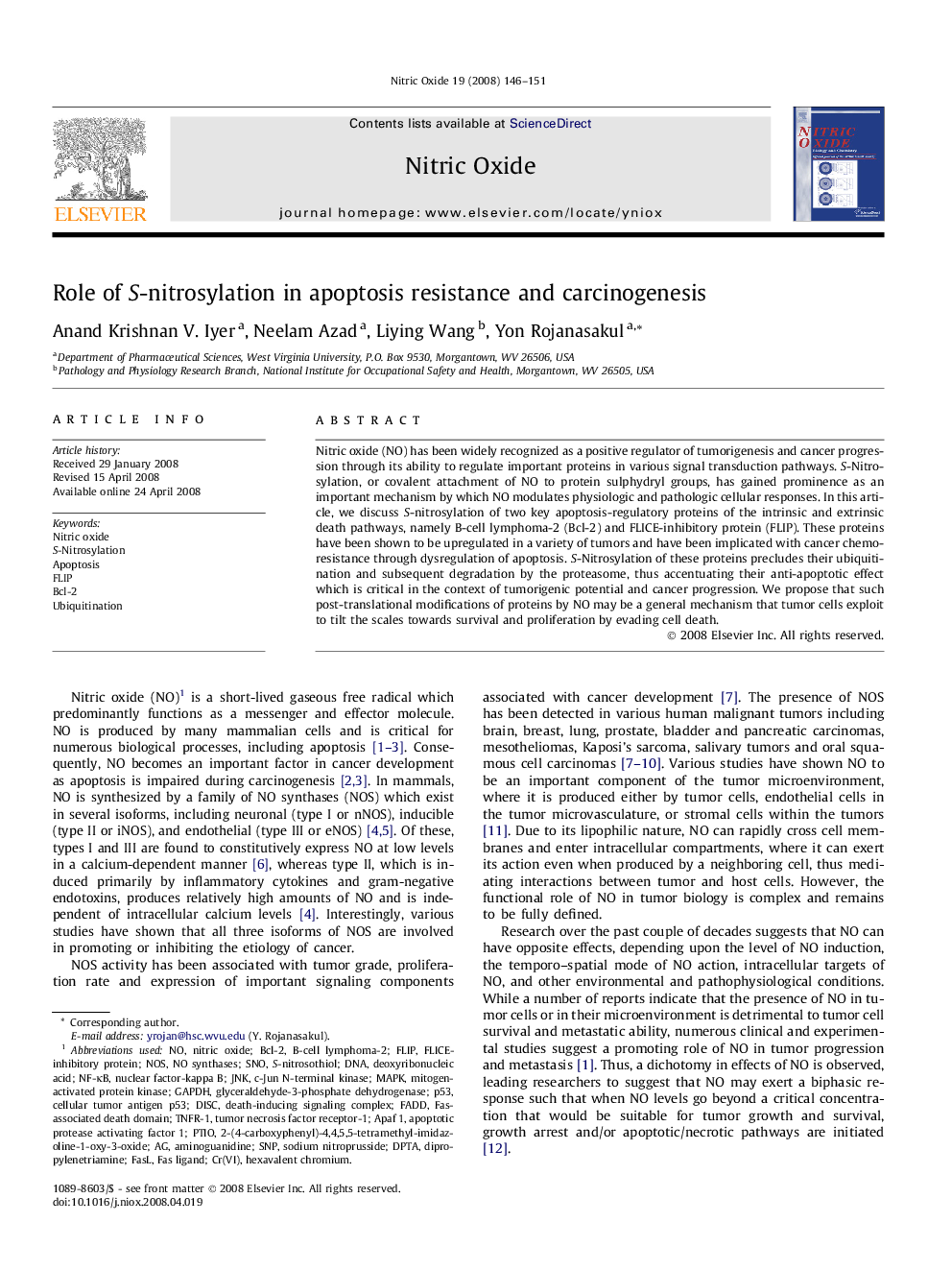| Article ID | Journal | Published Year | Pages | File Type |
|---|---|---|---|---|
| 2001391 | Nitric Oxide | 2008 | 6 Pages |
Nitric oxide (NO) has been widely recognized as a positive regulator of tumorigenesis and cancer progression through its ability to regulate important proteins in various signal transduction pathways. S-Nitrosylation, or covalent attachment of NO to protein sulphydryl groups, has gained prominence as an important mechanism by which NO modulates physiologic and pathologic cellular responses. In this article, we discuss S-nitrosylation of two key apoptosis-regulatory proteins of the intrinsic and extrinsic death pathways, namely B-cell lymphoma-2 (Bcl-2) and FLICE-inhibitory protein (FLIP). These proteins have been shown to be upregulated in a variety of tumors and have been implicated with cancer chemoresistance through dysregulation of apoptosis. S-Nitrosylation of these proteins precludes their ubiquitination and subsequent degradation by the proteasome, thus accentuating their anti-apoptotic effect which is critical in the context of tumorigenic potential and cancer progression. We propose that such post-translational modifications of proteins by NO may be a general mechanism that tumor cells exploit to tilt the scales towards survival and proliferation by evading cell death.
